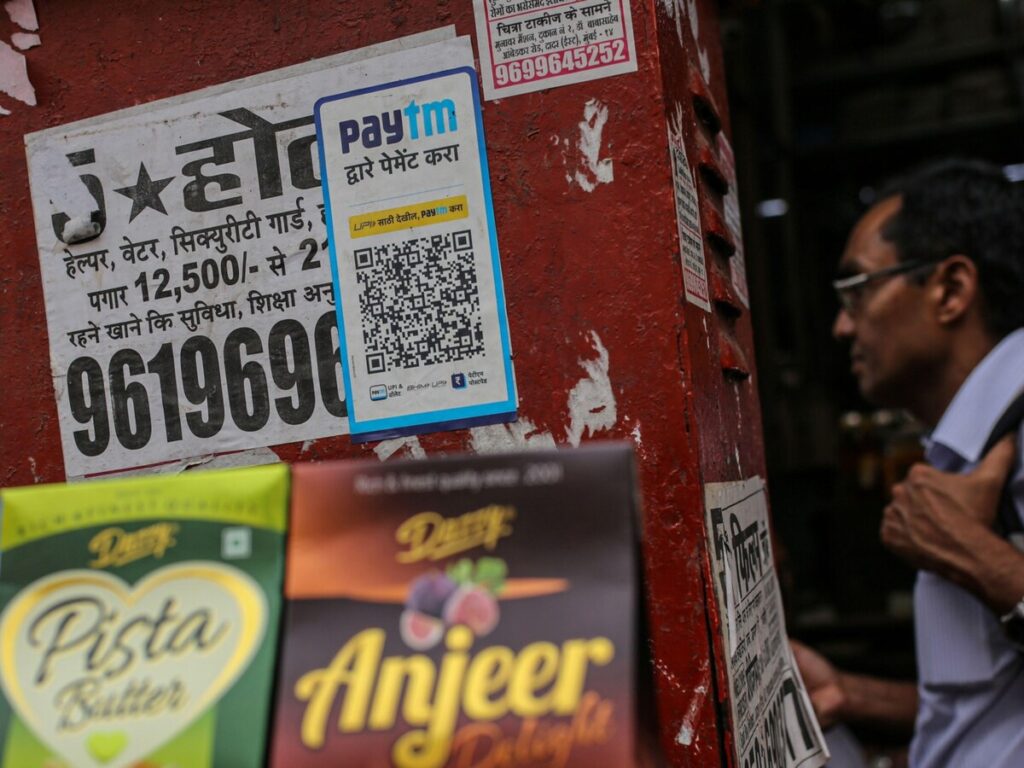After the Reserve Bank of India prohibited Paytm Payments Bank Ltd. from making any deposits or credit transactions in client accounts, wallets, or cards after February 29, investors have been asking themselves that question.
It seems like not much of a problem. In India, a payments bank is essentially a utility that isn’t allowed to lend money but can take deposits up to 200,000 rupees. Since the regulator has essentially suspended its operations, Paytm, which holds 49% of the bank, is free to move its fintech clients to another financial institution. But more significant than that is the message the regulator has communicated with its unexpectedly severe prohibition.
The Reserve Bank of India (RBI) halted the payments bank’s ability to accept new clients over two years ago. Paytm has indicated thus far that the corrective activity is proceeding satisfactorily. The RBI’s final report, which the bank received in October 2022, focused on the necessity of bolstering operational risk management and IT outsourcing, including know-your-customer and anti-money laundering procedures. The RBI then suggested taking time-bound actions. As per Paytm’s 2023 annual report, “The Bank has completed the compliance to these instructions.”
The RBI obviously holds a different opinion. “Persistent non-compliances and ongoing material supervisory concerns” were emphasised in a press release issued on Wednesday. By requiring the bank to close the primary accounts of One 97 Communications Ltd., the publicly traded company, and Paytm Payments Services Ltd., a subsidiary, “as soon as possible,” the regulator took yet another stab in the back.
This is intriguing as well. The RBI granted licences for payment aggregators to six companies in December, including Google Pay and Razorpay. Among them was Paytm Payments Services, whose application had been requested to be resubmitted. The unit is unable to add new online merchants to its gateway until a licence is obtained.
If the limitation is removed after transferring the account to a different deposit-taking bank, it suggests that the RBI’s worries were unique to the payments bank. If not, it would indicate a broader problem with the fintech group’s trust.
Paytm has stated that the current action by the RBI will not impact its loan and insurance distribution or equity broking services. However, it has estimated that in the worst-case scenario, its yearly earnings could be negatively impacted by up to $60 million. That may postpone the startup’s aim of becoming profitable, but it’s only one of many obstacles facing a company that lost $220 million in revenue the previous year.
Source: CNBC- TV 18
There is another issue at hand. Regulatory assurance has a role in fostering consumer confidence in a mainstream business that they use for anything from paying for auto rickshaw rides to settling highway tolls. The same is true for financial partners, who last quarter sold loans totalling close to $2 billion across Paytm’s online network. The sharp condemnation from the RBI might make some of them reconsider and look for alternative venues.
A few months ago, China’s Ant Group Co., an early supporter of the Indian business, sold a 10% interest to Paytm founder Vijay Shekhar Sharma. Since Beijing and New Delhi have a chilly relationship, it was more important to show the authorities that an app that was integrated into the nation’s payments infrastructure was firmly under local control.
Even though Sharma could have appeased the lawmakers, it appears that the RBI was unsatisfied with the bank’s operations. Paytm’s investment case has become far less compelling.
What do you think about this? Comment below.

